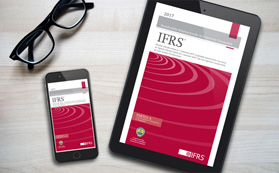Law no 49/2024: Obligations and opportunities for the agri-food chain
Numărul 11, 20-26 mar. 2024 » Finance & Economics
Law no. 49/2024 for the amendment and completion of Law no. 217/2016 on reducing food waste, published in the Official Gazette, Part I no. 225 of March 18th, 2024, it will enter into force on March 21st, 2024.
The main provisions:
1. Economic operators in the agri-food sector are obliged to take measures to prevent food waste, according to the following food waste prevention hierarchy:
- accountability measures to reduce food waste in the agri-food chain, starting with the production, processing, storage, distribution and marketing of food, including in the hotel industry and food services sector.
- measures regarding the reduced price sale of products close to the expiry date, according to the legislation in force;
- measures for the redistribution of food by transfer for free, for human consumption, to receiving operators, as well as measures regarding the redistribution of food, by transfer, for human consumption, to economic operators;
- measures for the use and consumption of food products in animal feed, until the expiration of their validity period, in compliance with the sanitary and veterinary legislation in the field of animal nutrition;"
- measures for directing products of animal origin that have become unfit for human consumption to users registered in order to use category 3 material for feeding animals in shelters.
- measures for directing agro-food products that have become unfit for human or animal consumption in order to capitalize them by turning them into compost;
- measures for directing agro-food products that have become unfit for human or animal consumption in order to capitalize them by transforming them into biogas;
- measures for directing animal by-products not intended for human consumption to an authorized processing unit
- in the case of the measures provided for in letters e)-g) the legislation on environmental protection, in force (unchanged provision) is applied
- measures for the elimination and use of animal by-products and derived products.
Important: Before ordering the neutralization of generated waste, it is mandatory to implement at least two actions to prevent food waste, provided in paragraph (2) letters a) - f).
2. The free transfer of food is made to receiving operators or final consumers, being prohibited from selling food to other operators in the food sector or to the final consumer.
3. When can the transfer take place
The transfer or free transfer of food by economic operators is done in compliance with the provisions of national and European legislation on food safety, as follows:
- for food products to which a consumption limit-date is applied, the transfer is made before that date;
- for food products to which a date of minimum durability is applied, the transfer can also take place after that date;
- for food products that are exempt from the indication of the validity period, a minimum durability date is not required at any time.
Sanctions for failure to comply with the obligations from point 3 and point 4: fine from 10,000 lei to 20,000 lei.
4. Fiscal facilities
Economic operators who transfer food free of charge to receiving operators, according to the provisions of this law, benefit from the following fiscal facilities:
- the deductibility when calculating the fiscal result, of the expenses of removing food from the records
- the transfer does not constitute a delivery of goods in terms of VAT (it does not fall within the scope of value added tax).
To remember!
- Minimum durability date – the date until which the food product retains its specific properties when properly stored;
- Expiration date – the date after which a food product is considered unsafe;
- Shelf life – the time limit/date established by the manufacturer until which a product retains its original specific characteristics, if the conditions of storage and preservation have been complied with;
- Receiving operators – operators in the agri-food sector that carry out registered/authorized sanitary-veterinary and food safety activities, who are responsible for compliance with food hygiene legislation after taking them over from economic operators.
(Copyright foto: 123RF Stock Photo)






Ziua Brâncuși sub semnul omagierii unei opere inestimabile
Pe întregul cuprins al țării, manifestări prin care toate artele transmit un mesaj comun, autentic umanist
Iași – opt zile de concerte memorabile
Zeița Thalia inspiră formule inovative în arta spectacolului
Ample programe științifice și culturale dedicate marilor personalități ale istoriei naționale
Ziua Culturii Naționale, prilej de celebrare a celor mai de seamă valori din patrimoniul românilor de pretutindeni
Împreună, sub semnul emblematic al bradului și colindelor
Târgul „Gaudeamus”, ediția 2024, o reușită reîntâlnire a cărții cu cei care o prețuiesc